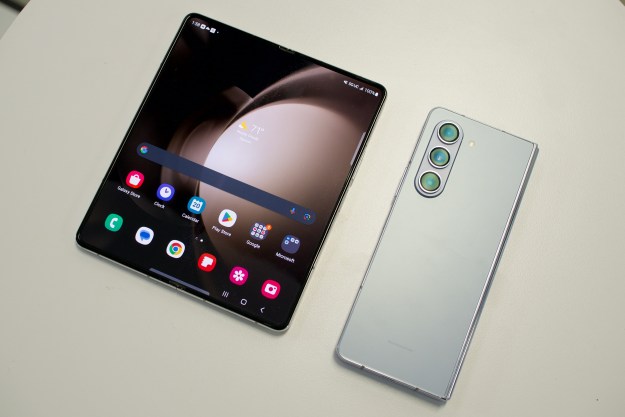Here’s an incredible statistic. If the skin cancer melanoma is detected when it’s already pushing through the advanced stages, then there’s a 15-percent chance of survival. However, if it’s caught early, that survival rate climbs to a massive 98-percent. That’s some serious motivation for keeping a watch on any suspicious moles — and we’re not talking about the ones digging up your lawn.
However, how do you do this without a medical degree, or facing a long wait to see a dermatologist? The MoleScope is a melanoma-detecting device for the smartphone era. It’s a tiny microscope which attaches to the camera on your phone. It takes close-up images of moles, sends them off to a dedicated analysis platform called the DermEngine, where they are studied by doctors. If there’s a hint of a problem, you’ll find out straight away.
Developed by Maryam Sadeghi during her PhD research in Computing Science several years ago, the MoleScope has finally become a reality, and has been revealed during the World Congress of Dermatology in Vancouver this week. It operates using a specially designed app suitable for iOS (an Android version is in development), and is ideal for keeping track of how moles and skin condition can alter over time.
Medical-grade tech in your home, that’s proven to work
While the importance of catching skin cancer early are clear from the earlier stat, there are several other benefits to using the MoleScope. The first is time. Sadeghi explained to CBC News, “As a patient, I don’t have to wait 12 months to use a doctor’s phone or camera to look at my mole. I can do this from home. It enables patients to have access to the same system that doctors have in their clinic.”
Additionally, like many other examples of smartphone-based medical tech, it will be extremely helpful in regions where medical services are less specialized, or in places where a skin cancer specialist isn’t available. The high quality images made possible using a smartphone are the key to the MoleScope’s effectiveness, and it has already been proven to work. According to Sadeghi, when the device was being tested, her PhD supervisor was assessing the pictures taken of her own skin, and managed to self-diagnose melanoma. “We were fortunate that she found it at an early stage,” Sadeghi told CBC.
There are two versions of the MoleScope, and both can be pre-ordered online ready for delivered before the end of the summer. One will be a consumer version available at the moment for $100, and a second pro-edition with additional patient management features, for $200. The MoleScope is currently suitable for the iPhone 5 onwards.



